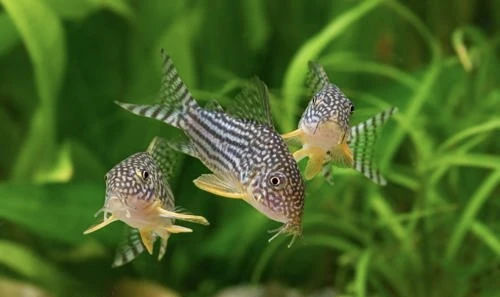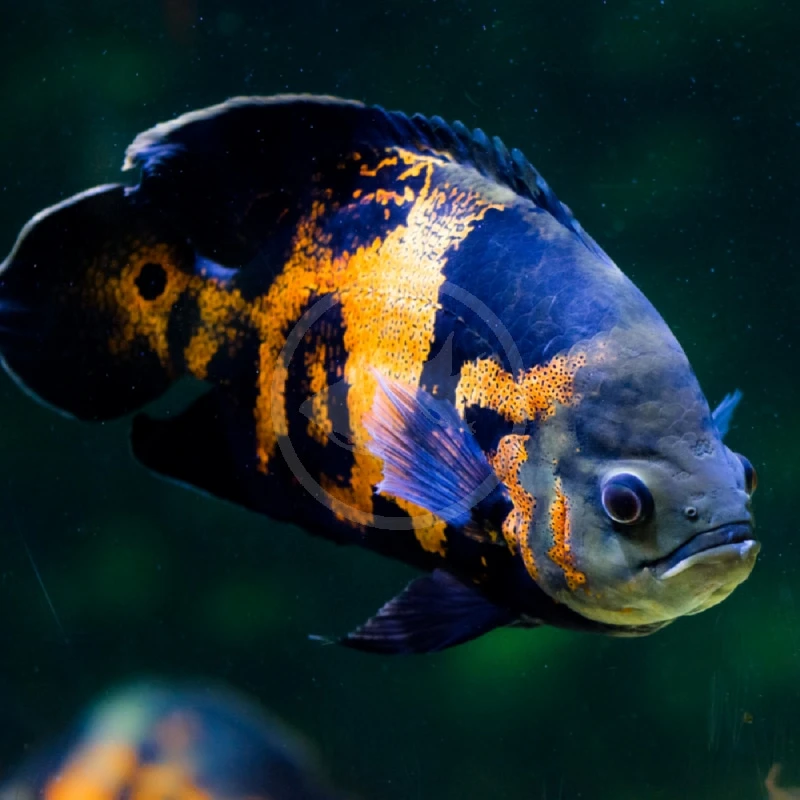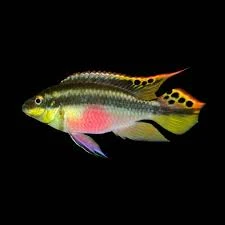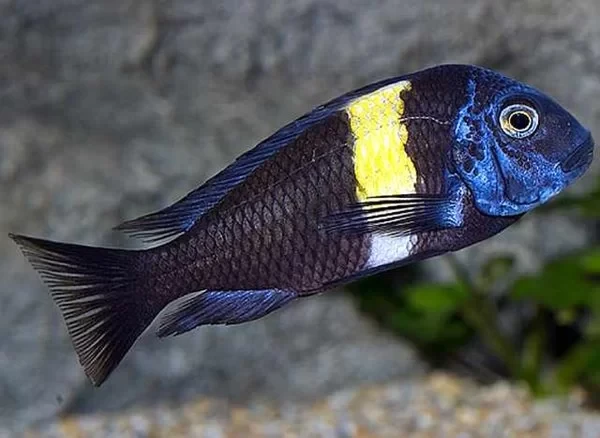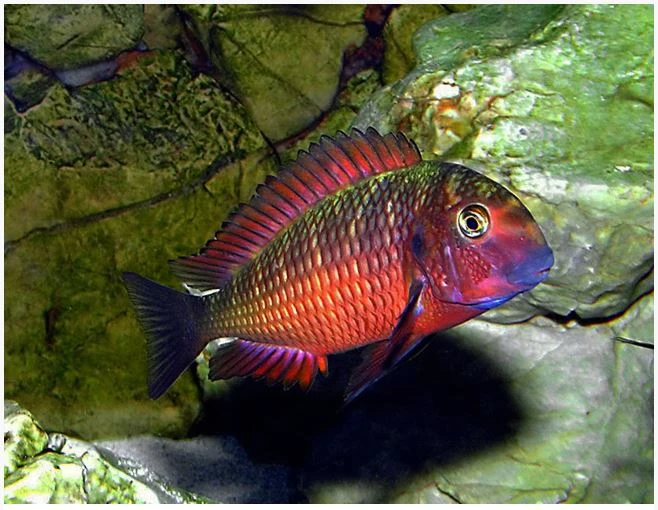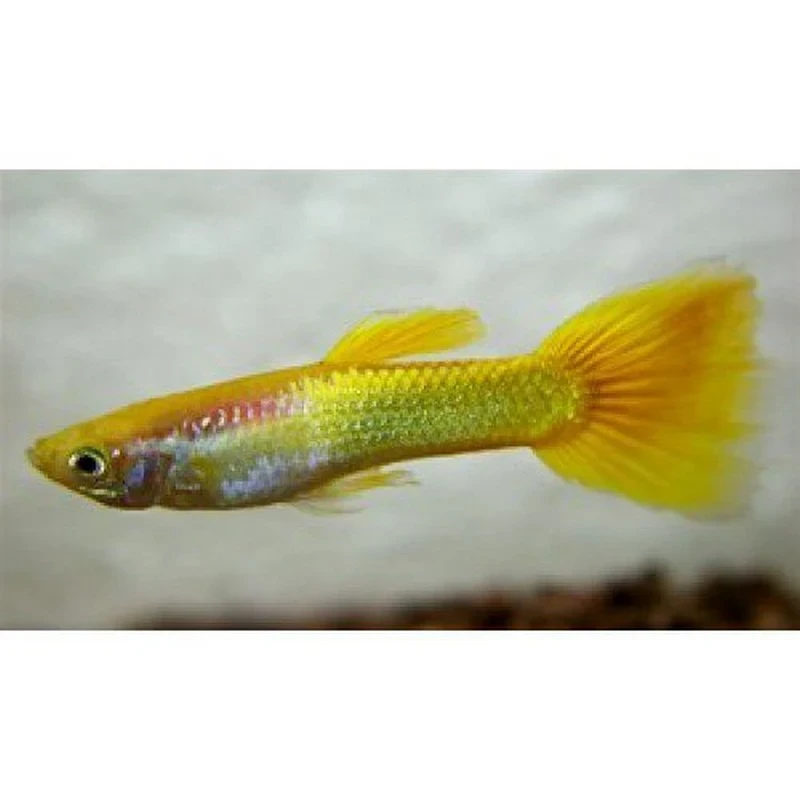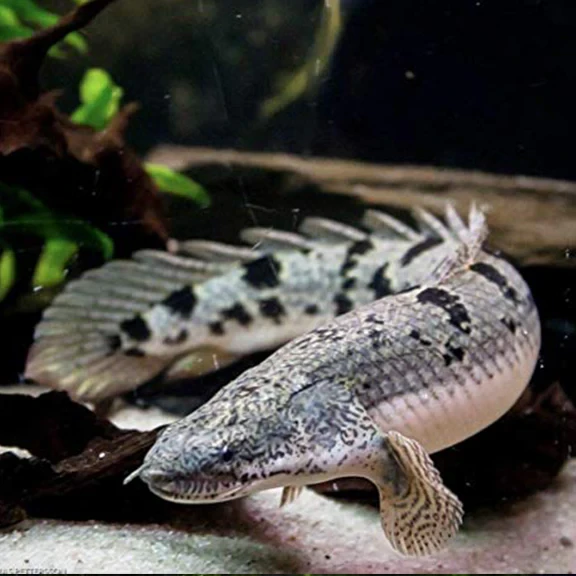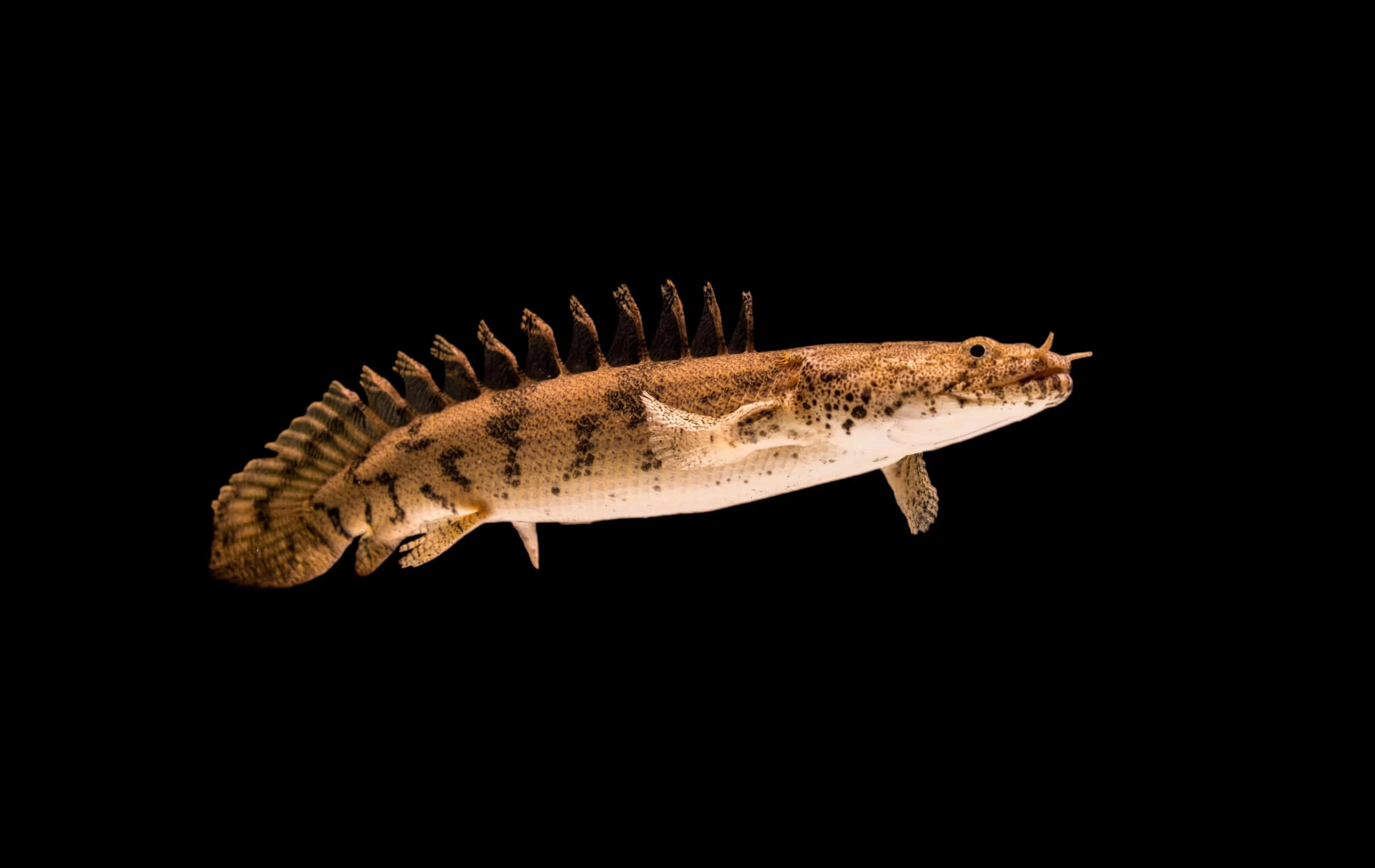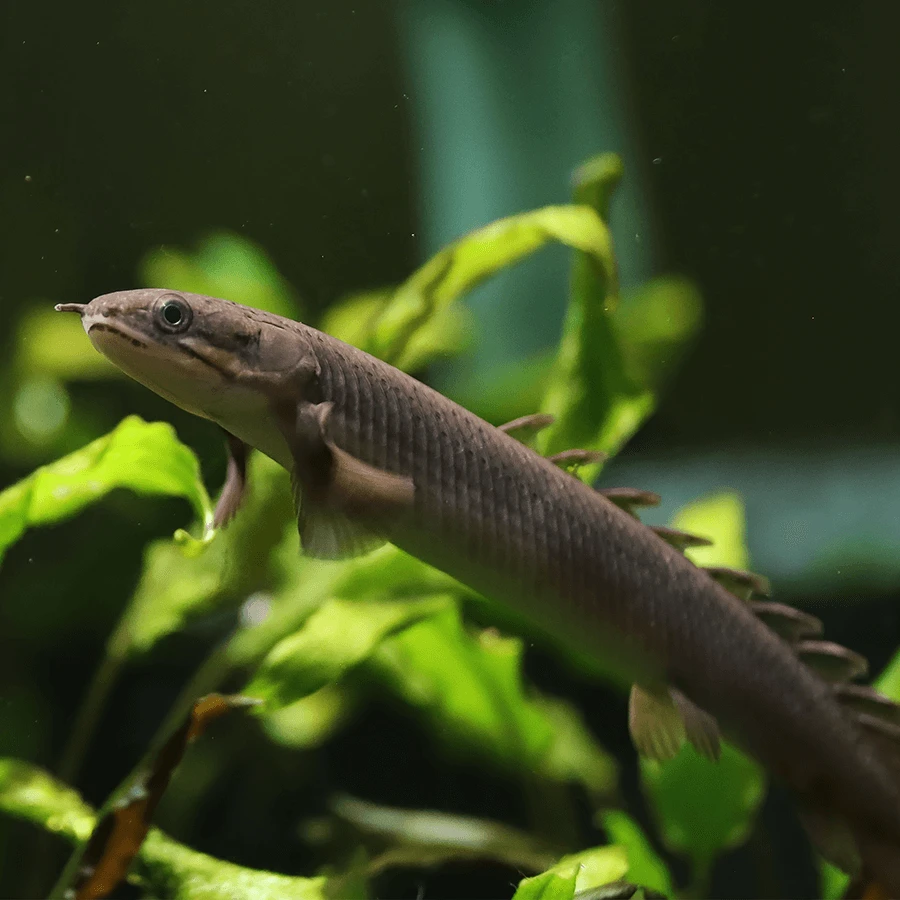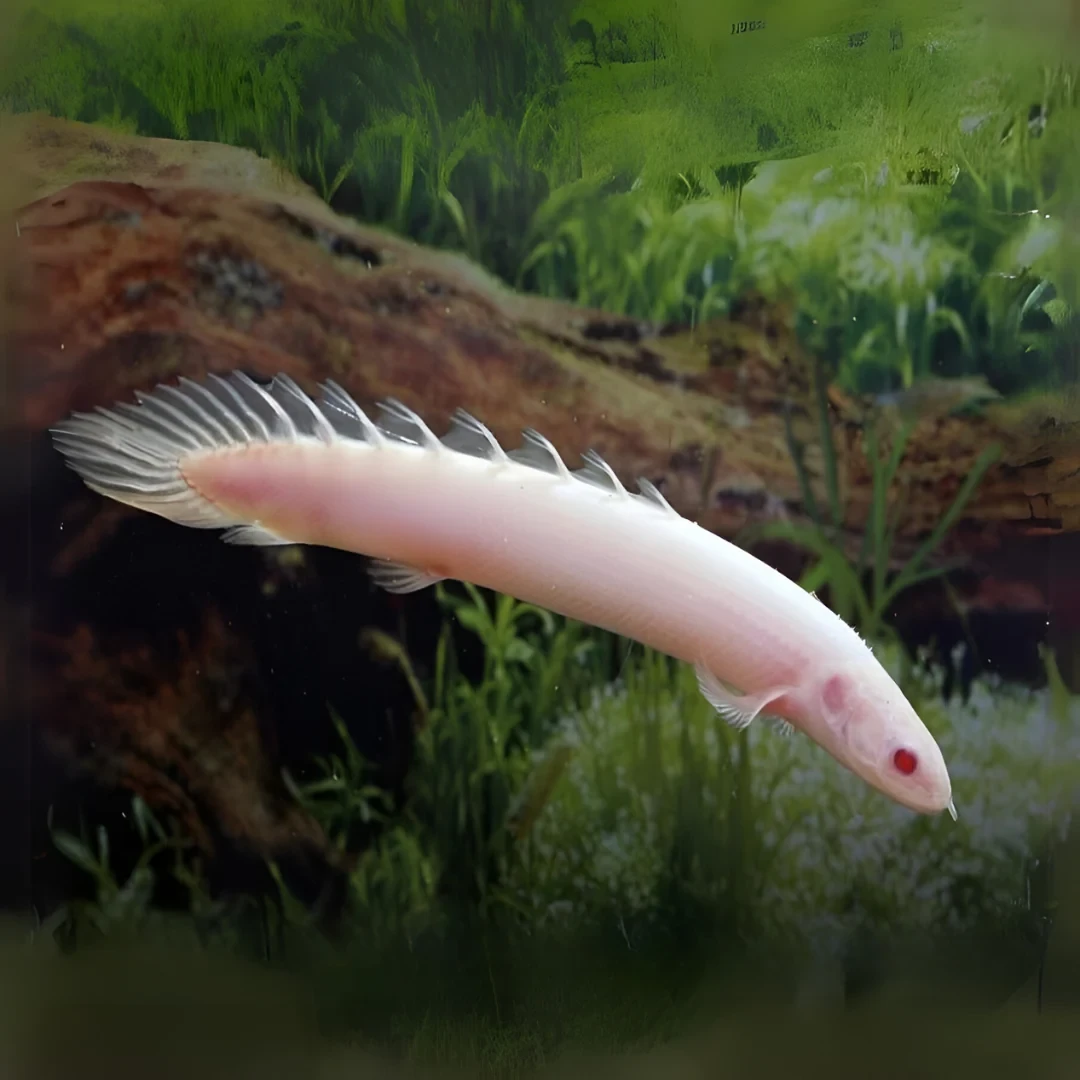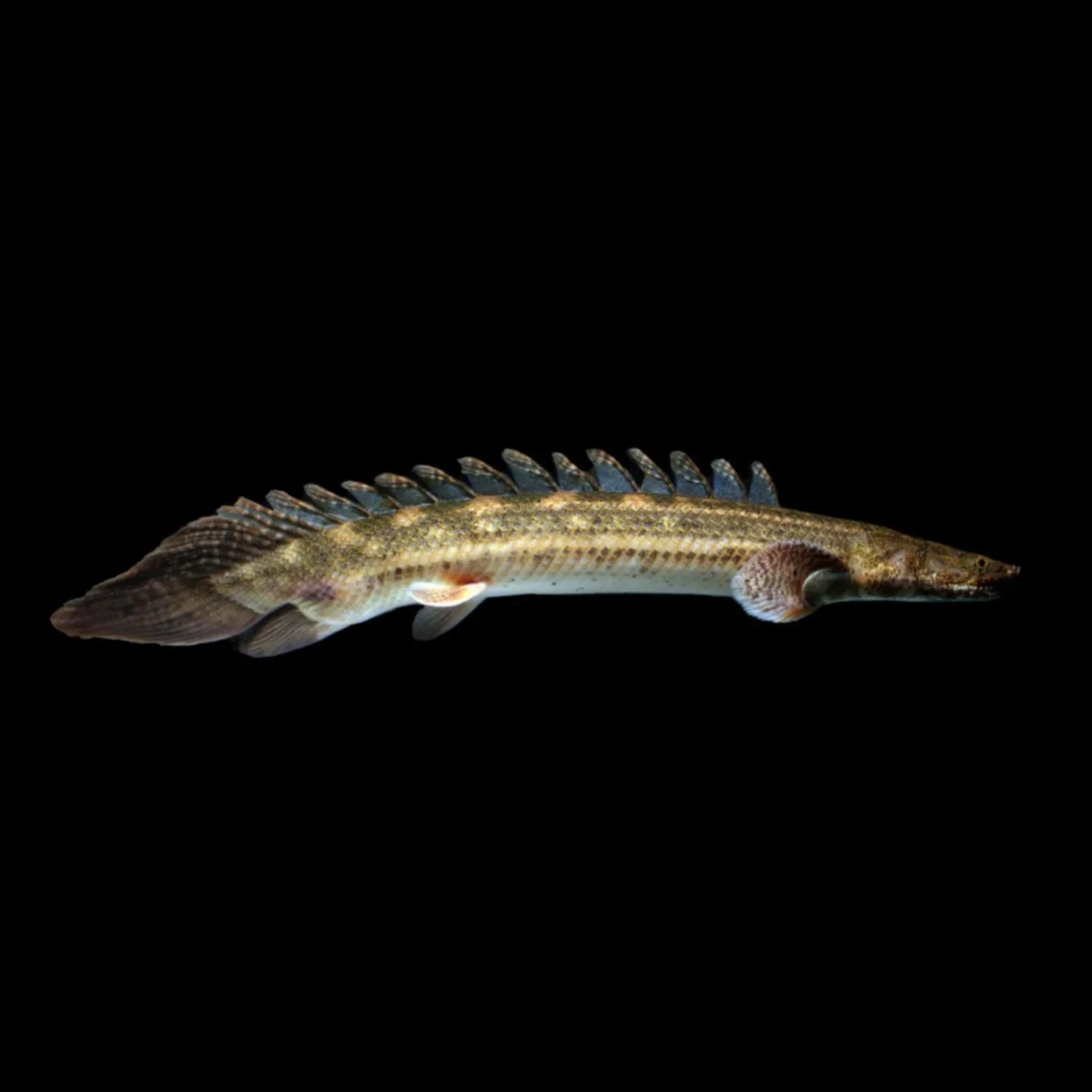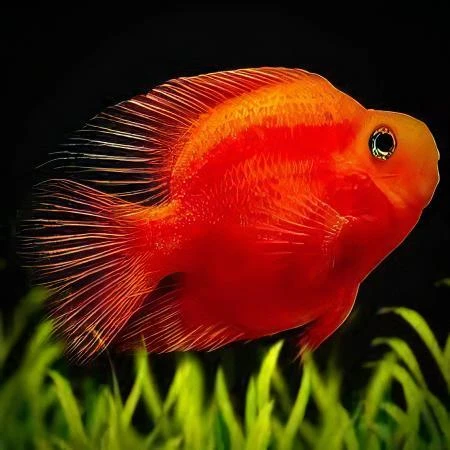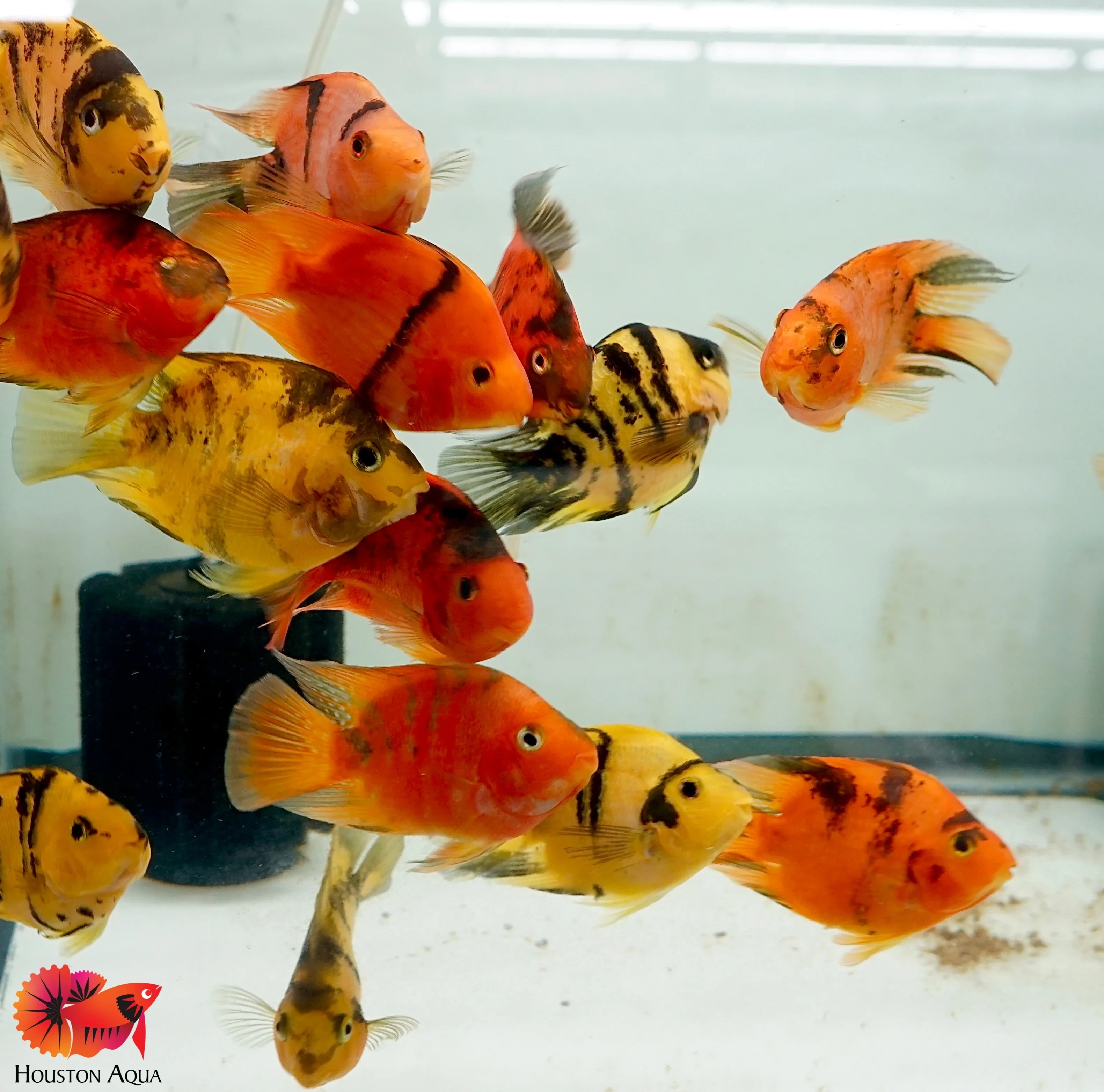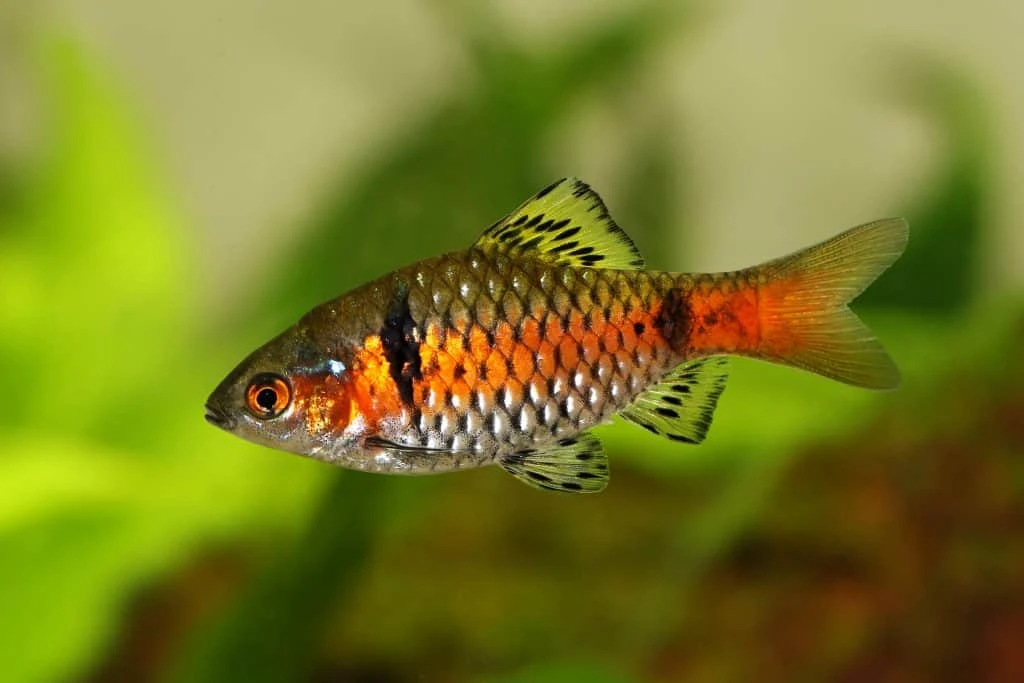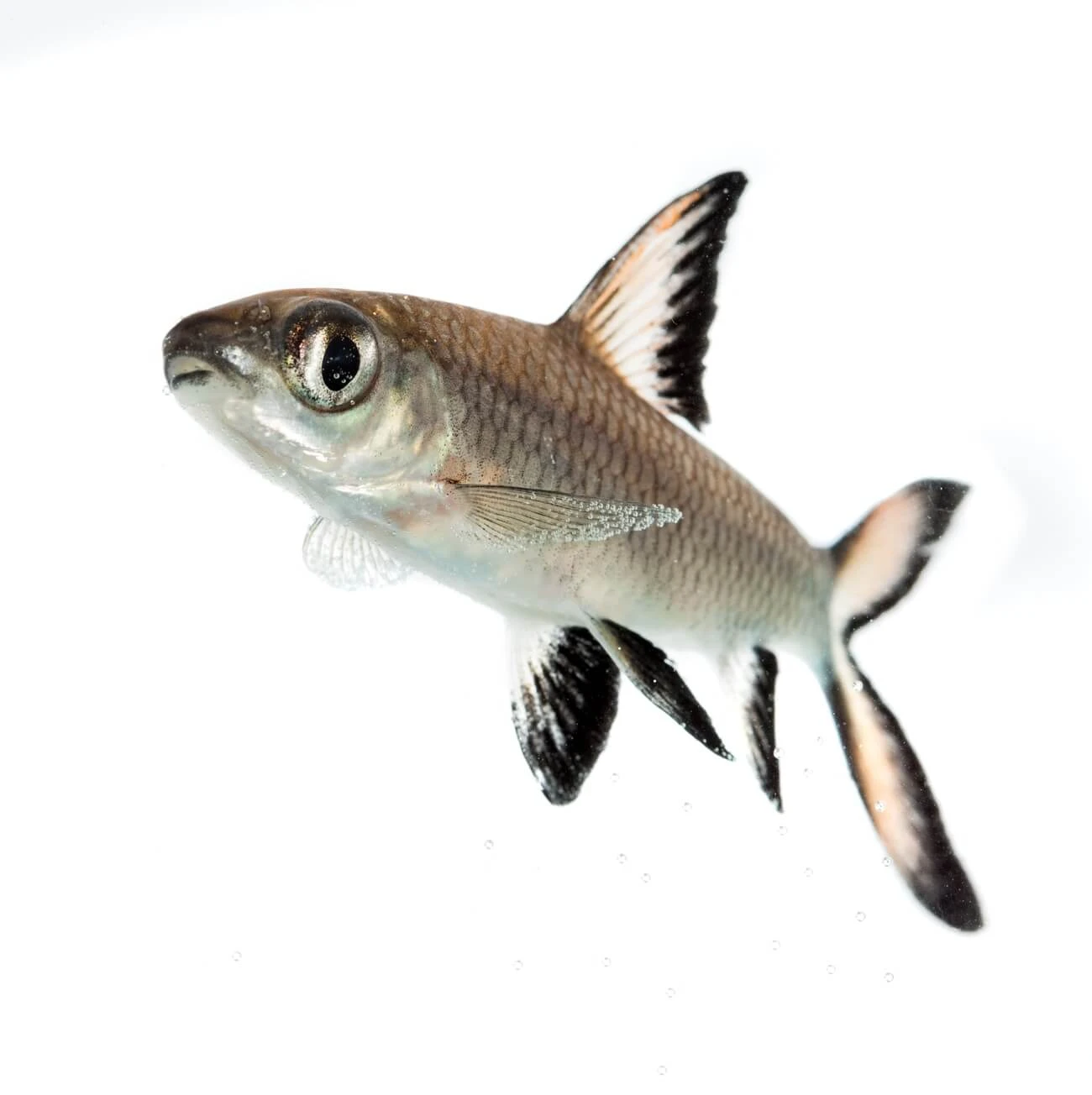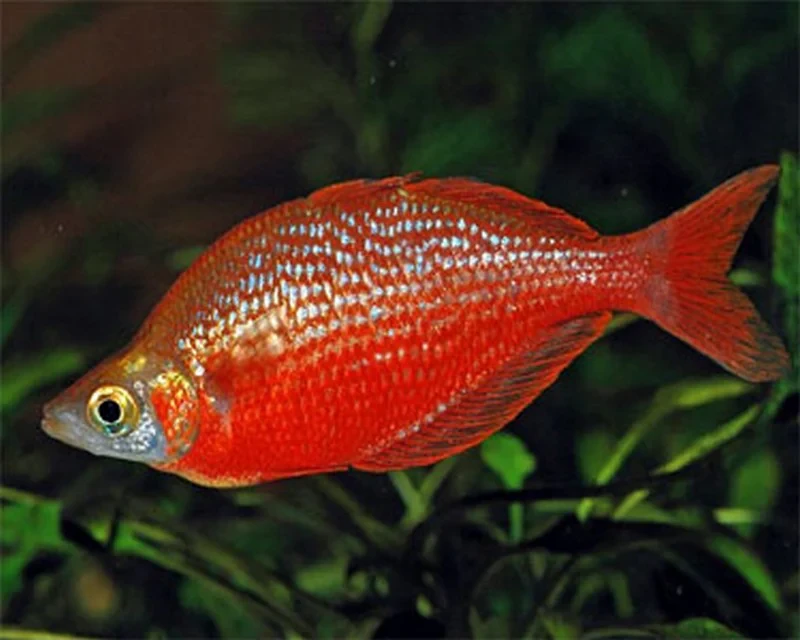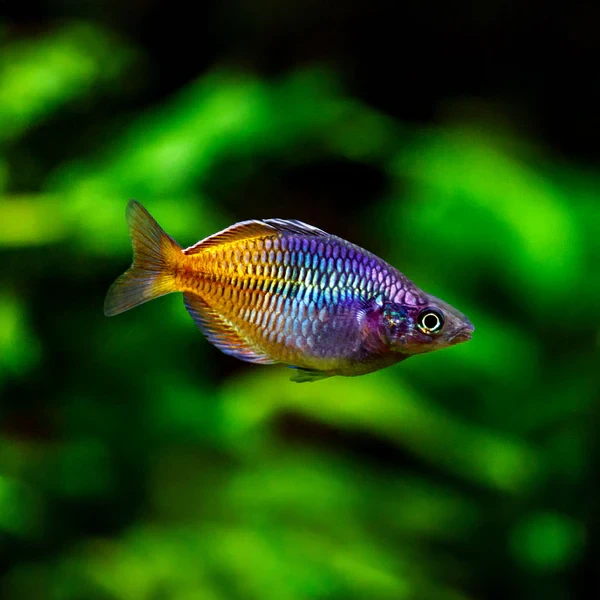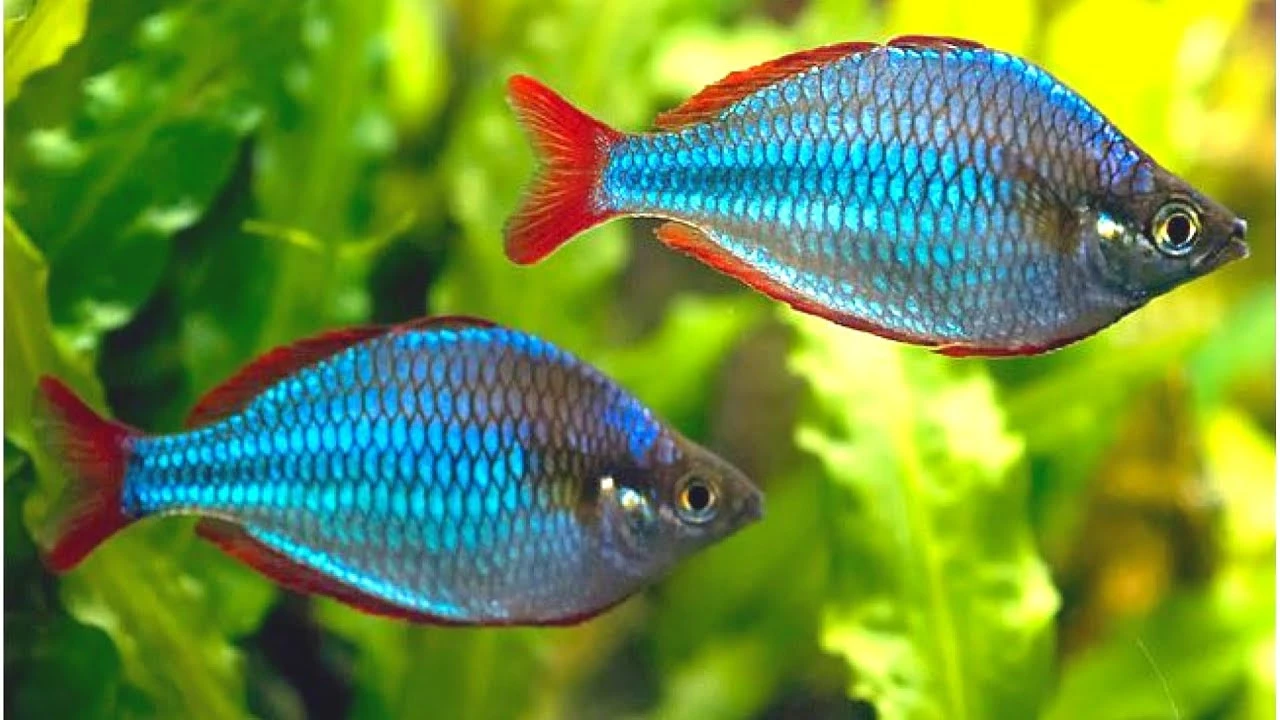Sterbai Cory Catfish (Corydoras sterbai)
The Sterbai Cory Catfish is a beautiful and hardy bottom-dwelling fish known for its dark body with orange pectoral fins and intricate white or light-colored spotted patterns. It is one of the most popular Corydoras species in the aquarium hobby due to its adaptability and peaceful nature.
Key Information:
• Maximum Size: Typically grows to 2.5–3 inches (6–7.5 cm) in length.
• Native Habitat: Found in South America, particularly in the Guaporé River Basin, which runs through Bolivia and Brazil. They inhabit slow-moving, warm, oxygen-rich waters.
• Growth Rate: Moderate; reaches about 1.5 inches (4 cm) in the first year, with full growth in 1.5–2 years.
• Life Span: Usually 5–8 years, but can live up to 10 years with excellent care.
• Diet: Omnivorous, feeding on:
• Sinking pellets and algae wafers
• Blanched vegetables (zucchini, cucumber, spinach)
• Protein-rich foods like bloodworms, brine shrimp, and daphnia
• Leftover food from other fish, helping keep the tank clean
• Breeding Season: Can breed year-round in captivity if provided with good water conditions.
• Egg scatterers—females lay eggs on glass, plants, or decorations.
• Males fertilize the eggs, and females carefully place them.
• Eggs hatch in about 3–5 days, and fry can eat baby brine shrimp or finely crushed flakes.
• Best Tank Mates:
• Peaceful community fish (Tetras, Rasboras, Guppies, Mollies)
• Other Corydoras species
• Small Plecos (like Bristlenose Plecos)
• Dwarf Cichlids (Apistogramma, Rams)
• Shrimp and snails
• Avoid aggressive fish like large Cichlids, which may harass or eat them.
Additional Care Tips:
• Tank Size: Minimum 20–30 gallons, as they prefer being in groups of 5 or more.
• Water Conditions:
• Temperature: 75–82°F (24–28°C) (warmer than some other Corydoras species)
• pH: 6.0–7.5
• Soft to moderately hard water
• Tank Setup:
• A soft sandy substrate is ideal to protect their sensitive barbels.
• Provide hiding spots with driftwood, caves, and plants.
• Good filtration and aeration are important since they occasionally swim up to gulp air.
• Behavior: Highly social and active, best kept in groups for a natural and stress-free environment.



